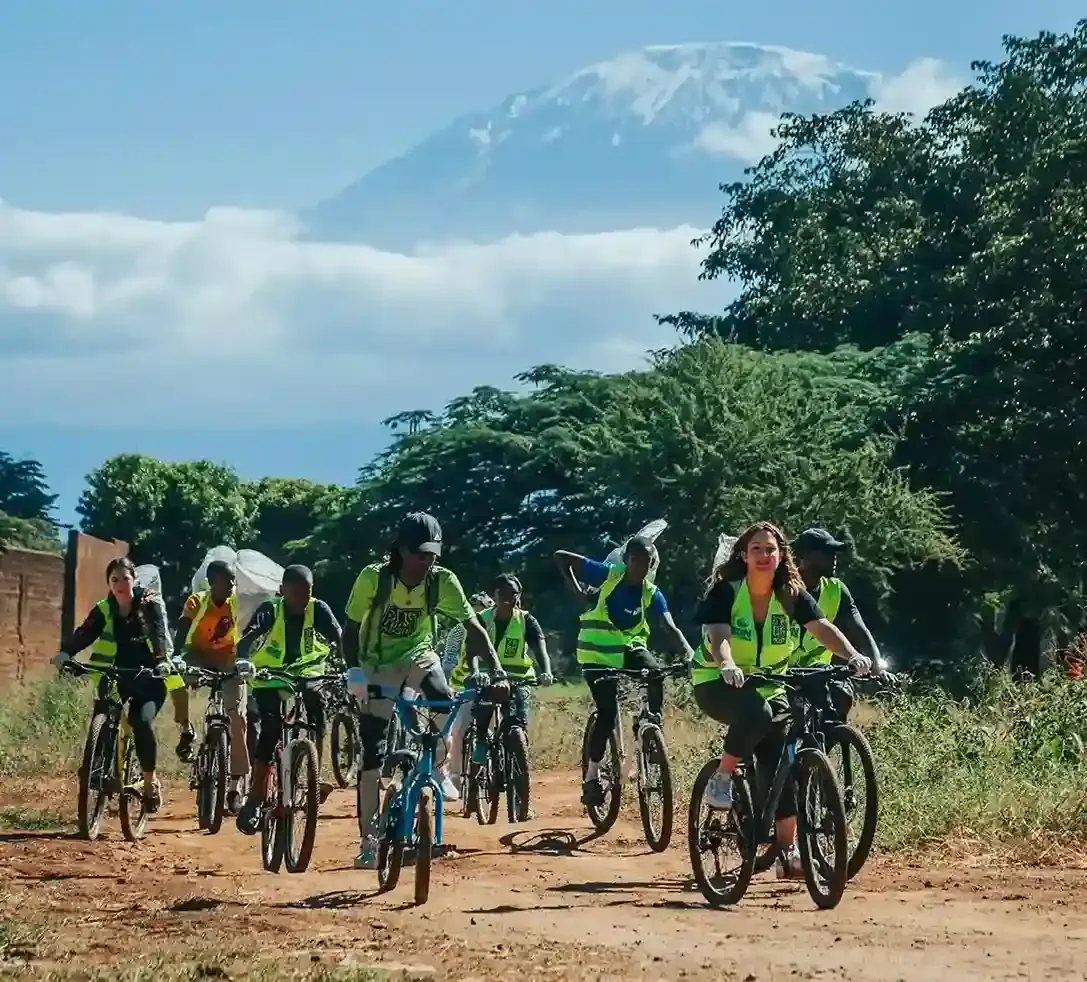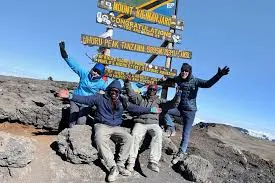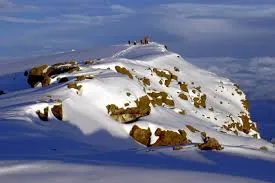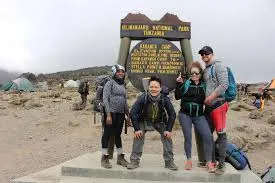Kilimanjaro Cycling Challenge: Epic Multi-Day Adventure
Ready to pedal through the breathtaking landscapes of Mount Kilimanjaro? The Kilimanjaro Cycling Challenge with Capable Africa Tours is your ticket to an unforgettable multi-day adventure. Cycle through lush rainforests, vibrant villages, and rugged alpine terrains, soaking in panoramic views of Africa’s highest peak. This thrilling bike tour combines physical challenge with cultural immersion and eco-conscious exploration. Below, dive into everything you need to know about this bucket-list adventure, from itinerary details to preparation tips.
Plan Your Cycling Adventure Now
Why Choose the Kilimanjaro Cycling Challenge?
The Kilimanjaro Cycling Challenge is a unique way to experience Mount Kilimanjaro, blending adrenaline-pumping biking with Tanzania’s rich cultural and natural beauty. Unlike trekking, this multi-day adventure lets you cover more ground, from rainforest trails to savanna paths, while enjoying lower crowds and immersive local encounters. With Capable Africa Tours, you’ll ride with expert guides, top-notch bikes, and a support vehicle for safety and comfort. Here’s why this adventure stands out.
Cycling Challenge Highlights
- Scenic Diversity: Ride through rainforests, savannas, and alpine zones with views of Kilimanjaro’s snow-capped summit.
- Cultural Immersion: Pass through Chagga and Maasai villages, meeting locals and learning about their traditions.
- Flexible Itineraries: Choose 5, 6, or 7-day routes (150–200 km) tailored to your fitness level.
- Eco-Conscious Adventure: Capable Africa Tours supports sustainable tourism, minimizing environmental impact.
- High-Quality Gear: Access full-suspension mountain bikes and safety equipment for a smooth ride.
Difficulty and Preparation for the Kilimanjaro Cycling Challenge
The Kilimanjaro Cycling Challenge is moderately challenging, ideal for cyclists with some off-road experience. Expect 5–7 hours of daily riding over varied terrain, including dirt trails, rocky paths, and occasional steep climbs. Elevation gains range from 800–1,800 m, requiring solid endurance and bike-handling skills. Capable Africa Tours provides pre-trip training plans and bike-handling sessions to ensure you’re ready to conquer the trails.
Key Preparation Tips
- Endurance Training: Cycle 3–5 times weekly for 2–3 hours, focusing on hill climbs and off-road trails.
- Strength Workouts: Incorporate squats, lunges, and core exercises to handle rough terrain.
- Bike Handling: Practice on gravel or dirt trails to master control on uneven surfaces.
- Altitude Prep: Train at elevations above 1,500 m or use altitude simulation if possible.
- Gear Testing: Test your biking gear, including helmets, gloves, and padded shorts, on long rides.
Cycling Challenge Stats
| Metric | Value |
|---|---|
| Total Distance | 150–200 km / 93–124 mi |
| Duration | 5–7 days |
| Max Elevation Gain | 1,800 m / 5,906 ft |
| Average Daily Riding Time | 5–7 hours |
| Terrain Types | Dirt trails, gravel, rocky paths, singletracks |
| Climate Zones | 4 (Rainforest, Savanna, Heath, Alpine) |
Experience the Kilimanjaro Cycling Challenge
Watch this video to see the thrill of cycling around Kilimanjaro with Capable Africa Tours, featuring rugged trails, vibrant villages, and stunning mountain vistas.
Essential Gear and Packing for the Cycling Challenge
For the Kilimanjaro Cycling Challenge, pack lightweight, durable gear to stay comfortable on multi-day rides. Prioritize moisture-wicking cycling clothing, a reliable helmet, and padded shorts for long hours in the saddle. Capable Africa Tours provides high-quality mountain bikes, but you’ll need personal essentials like a hydration pack and repair kits. A support vehicle carries your main gear (up to 15 kg), so you only need a small daypack for daily rides.
Packing Checklist
- Cycling Clothing (3–4 sets): Moisture-wicking jerseys, padded shorts, and breathable socks.
- Protective Gear: Full-face or standard helmet, gloves, and knee/elbow pads for safety.
- Outer Layers (1–2): Lightweight windproof jacket and rain poncho for variable weather.
- Footwear: Clipless or flat-pedal cycling shoes with good grip for mixed terrain.
- Accessories: UV400 sunglasses, SPF 50+ sunscreen, and a 2–3L hydration pack.
- Repair Kit: Multi-tool, spare tubes, tire levers, and a mini pump for quick fixes.
- Other Essentials: 20–30L daypack, headlamp, and portable charger for electronics.
Bike Rentals with Capable Africa Tours
Don’t want to bring your own bike? Rent high-quality mountain bikes from Capable Africa Tours, including full-suspension models designed for Kilimanjaro’s rugged trails. All bikes are serviced and fitted for your comfort.
Best Time for the Kilimanjaro Cycling Challenge
The best times to tackle the Kilimanjaro Cycling Challenge are January–March and June–October, when dry weather ensures clear trails and stunning views. Wet seasons (April–May and November) bring muddy paths and reduced visibility, so plan around these months. Capable Africa Tours schedules trips during optimal seasons for the best experience.
Seasonal Breakdown
| Season | Months | Weather | Pros | Cons |
|---|---|---|---|---|
| Dry (Peak) | Jan–Mar, Jun–Oct | Clear skies, 50–85°F | Dry trails, great visibility | Higher demand |
| Wet | Apr–May, Nov | Heavy rain, muddy | Fewer cyclists | Slippery trails, poor views |
| Shoulder | Dec, early Jun | Mixed, light rain | Moderate crowds, decent trails | Unpredictable weather |
Kilimanjaro Cycling Challenge Itinerary
The Kilimanjaro Cycling Challenge spans 5–7 days, covering 150–200 km around the base of Mount Kilimanjaro. Each day offers 20–40 km of riding through diverse landscapes, with stops at local villages and scenic viewpoints. Capable Africa Tours customizes itineraries to match your pace and preferences.
Sample 6-Day Itinerary
- Day 1: Moshi to Londorossi Gate (30 km) – Ride through coffee plantations and Chagga villages, ending in the rainforest zone.
- Day 2: Londorossi to Simba Camp (25 km) – Cycle through lush rainforests, spotting colobus monkeys and vibrant flora.
- Day 3: Simba Camp to Marangu (35 km) – Traverse savanna trails with views of Kibo Peak, passing Maasai settlements.
- Day 4: Marangu to Rongai (40 km) – Tackle rolling hills and rocky paths, enjoying alpine vistas and local markets.
- Day 5: Rongai to Mweka (35 km) – Ride through heath zones, with panoramic Kilimanjaro views and cultural stops.
- Day 6: Mweka to Moshi (25 km) – Descend through farmland, celebrating your adventure with a farewell in Moshi.
Costs and Inclusions for the Cycling Challenge
Join the Kilimanjaro Cycling Challenge with Capable Africa Tours for $2,000–$3,000, depending on group size and itinerary. Our all-inclusive packages cover bike rentals, guides, support vehicles, meals, and camping gear, ensuring a hassle-free adventure. Contact us for a personalized quote.
What’s Included
- Kilimanjaro National Park fees ($500–$700 per person)
- Professional cycling guides and support crew (1 guide per 3 cyclists)
- Full-suspension mountain bike rentals and maintenance
- All meals (high-energy, locally sourced) and purified water
- Camping gear (tents, sleeping pads) and support vehicle
- Round-trip transfers from Kilimanjaro International Airport
- Safety equipment (first aid kits, repair tools)
Additional Costs to Consider
- International flights to Tanzania ($800–$1,500)
- Travel insurance (covering adventure cycling)
- Personal gear (cycling clothing, helmets, hydration packs)
- Tips for guides and crew ($150–$250 recommended)
- Optional pre/post-trip lodging in Moshi or Arusha
Ready to Conquer the Kilimanjaro Cycling Challenge?
Pedal through Tanzania’s most iconic landscapes with Capable Africa Tours. Our expert guides, eco-friendly practices, and tailored itineraries ensure a thrilling and safe cycling adventure. Book now to secure your spot on this unforgettable journey!
- Customizable 5–7 day itineraries for all skill levels
- Eco-conscious tours supporting local communities
- High-quality bike rentals included in packages
- Expert guides with extensive Kilimanjaro knowledge
- All-inclusive packages with meals and transfers
Limited spots available for the Kilimanjaro Cycling Challenge — book now to ride around Africa’s highest peak!
Plan Your Adventure Now


